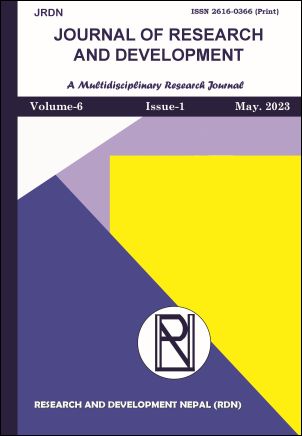Constructivist Approach to Learning: An Analysis of Pedagogical Models of Social Constructivist Learning Theory
DOI:
https://doi.org/10.3126/jrdn.v6i01.55227Keywords:
Social constructivist, collaborative learning, scaffolding, pedagogical modelAbstract
The social constructivist approach is one of the dominant perspective that flourished the learner centered pedagogical model in education. This model of learning aims to imply the learners' autonomy and flexibility in instructional setting. This social constructivist highlights the learners' autonomy, reflective thinking, problem solving, collaborative learning, scaffolding as well as discussion and debates as the major learning principles in education. In the teaching learning discourse, the social constructivist learning model established the critical, problem solving and collaborative learning strategies to enhance the meaningful leaning achievement. And, the intra and interpersonal level of interaction play the crucial role in promoting the meaningful learning for tutoring process. This theory claims that the sign (language), ZPD, MKO and scaffolding are the key variables for the constructivist pedagogical model of learning. In this process, students are in the central place where they play the role of active thinker, co-constructor and active participant in learning process. Another side, teachers are only as the facilitator, guide, and stimulators within the whole instructional process in education.




